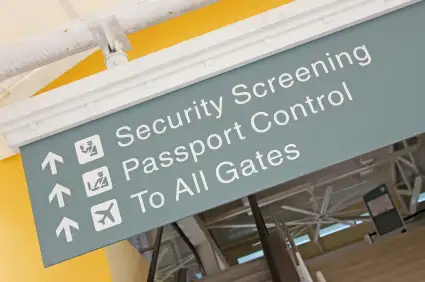
The Transportation Security Administration (TSA) is set to unveil a new bomb-screening program at airports across the country. TSA screeners will randomly select passengers for screening, which involves a chemical swab of passengers’ bags and the passengers themselves (likely their hands). The process is aimed at detecting explosives residue.
USA Today reports that the chemical swab would likely have detected the explosives concealed on Umar Farouk Abdulmutallab, who, of course, attempted to blow up a plane on Christmas day with explosives hidden under his clothes.
But the true effectiveness of this program lies almost entirely in its random application. The TSA can’t reasonably check every passenger and every piece of carry-on luggage, but knowing such a search is possible will create uncertainty in the mind of any would-be bomber. The program, therefore, seems meant to function as a deterrent as much, if not more, than as a last line of defense. Or at least that’s what the TSA is hoping.
However, the equipment used is highly sensitive and apparently quite prone to false positives. According to USA Today, “The machines are so sensitive that alarms can sound for passengers who have recently taken heart pills containing nitroglycerin, or if they have recently fired guns.” Presumably any positive result will lead to an additional search, meaning lots of innocent passengers could find themselves subjected to excessive and ultimately unwarranted scrutiny.
Which, it seems, is increasingly how our airport security functions. Everyday travelers bear the full force of an aggressive security program, and are forced to forfeit privacy and convenience in the name of detecting a faceless enemy. That said, it’s worth noting that the ACLU, which adamantly opposes whole-body imaging scanners, told USA Today that it does not object to these random bomb searches, which it says are “less invasive” than whole-body imaging. This is obviously true, though the potential for innocent passengers being unnecessarily hassled is clearly an issue.
On its face, roving bomb searches seem smart: They target the most dire threat against airline safety (bombs) and do so in a way that is quick and fairly unpredictable. But the program does not strike me as terribly intuitive, and rather as yet another reactionary move (think: 3-1-1 rule) that will only force would-be bombers to think a little harder about how to plot an attack. Gloves, anyone?
Readers, what do you think? Is this a smart way of approaching airport security, or just more security theater? Leave a comment below with your thoughts.
We hand-pick everything we recommend and select items through testing and reviews. Some products are sent to us free of charge with no incentive to offer a favorable review. We offer our unbiased opinions and do not accept compensation to review products. All items are in stock and prices are accurate at the time of publication. If you buy something through our links, we may earn a commission.
Related
Top Fares From
Today's Top Travel Deals
Brought to you by ShermansTravel
France: 8-Night Paris, Avignon & Nice...
Infinity Worldwide Vacations
 vacation
$2880+
vacation
$2880+
Poconos: 3 Nts in Garden of...
ResortsAndLodges.com
 hotel
$305+
hotel
$305+
7-Nt Canada & New England Cruise,...
Princess Cruises
 cruise
$839+
cruise
$839+



